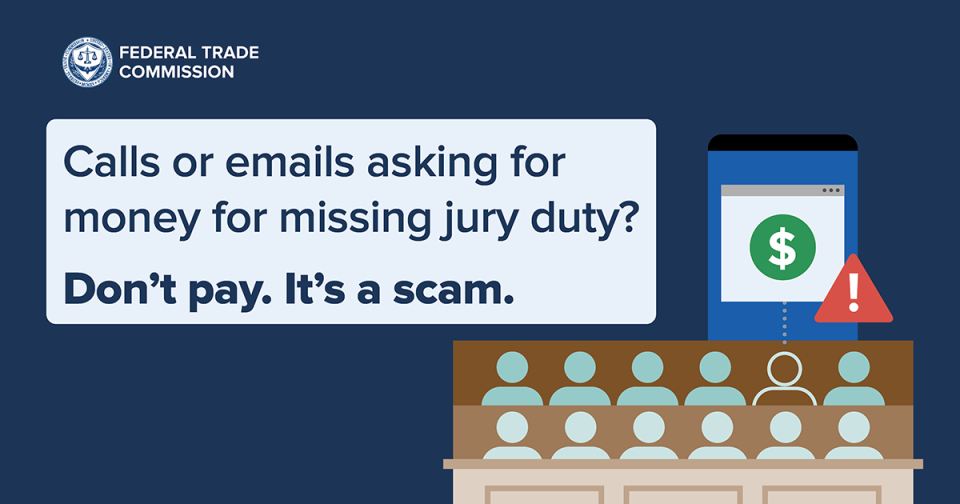Missing jury duty can come with real consequences. You could face a fine, go to court, or even get arrested. Scammers take advantage of that to get your money or sensitive information. But their story is a lie.
This scam usually starts with a phone call or an email from someone claiming to be from the police department or a court official. (They’re not.) They say you missed jury duty, even though you never got a jury duty notice. They’ll tell you there’s a warrant out for your arrest, and the only way to cancel it is to pay a fine. (It’s a lie.) If you refuse, they may threaten you with jail. Or they might ask for personal information like your Social Security number or date of birth to steal your identity. To make the scam seem real, scammers also might give you a fake sheriff’s badge number and case number.
Here’s how you can tell it’s a scam.
Courts never ask for immediate payment over the phone. In fact, no government agency will do that.
Only scammers insist that you can only pay with gift cards, a payment app, cryptocurrency, or a wire transfer service like Western Union or MoneyGram because it’s very hard to get your money back if you pay in these ways.
Courts never ask for sensitive personal information over the phone, like your Social Security number or date of birth. Only scammers do.
If you get a call or email like this, hang up or don’t respond. Don’t pay or give them any personal information. If you think a call or email could be real, call the court directly at a number you know is correct. Learn more about other ways scammers pretend to be the government. If you spot it, tell the FTC at ReportFraud.ftc.gov.





